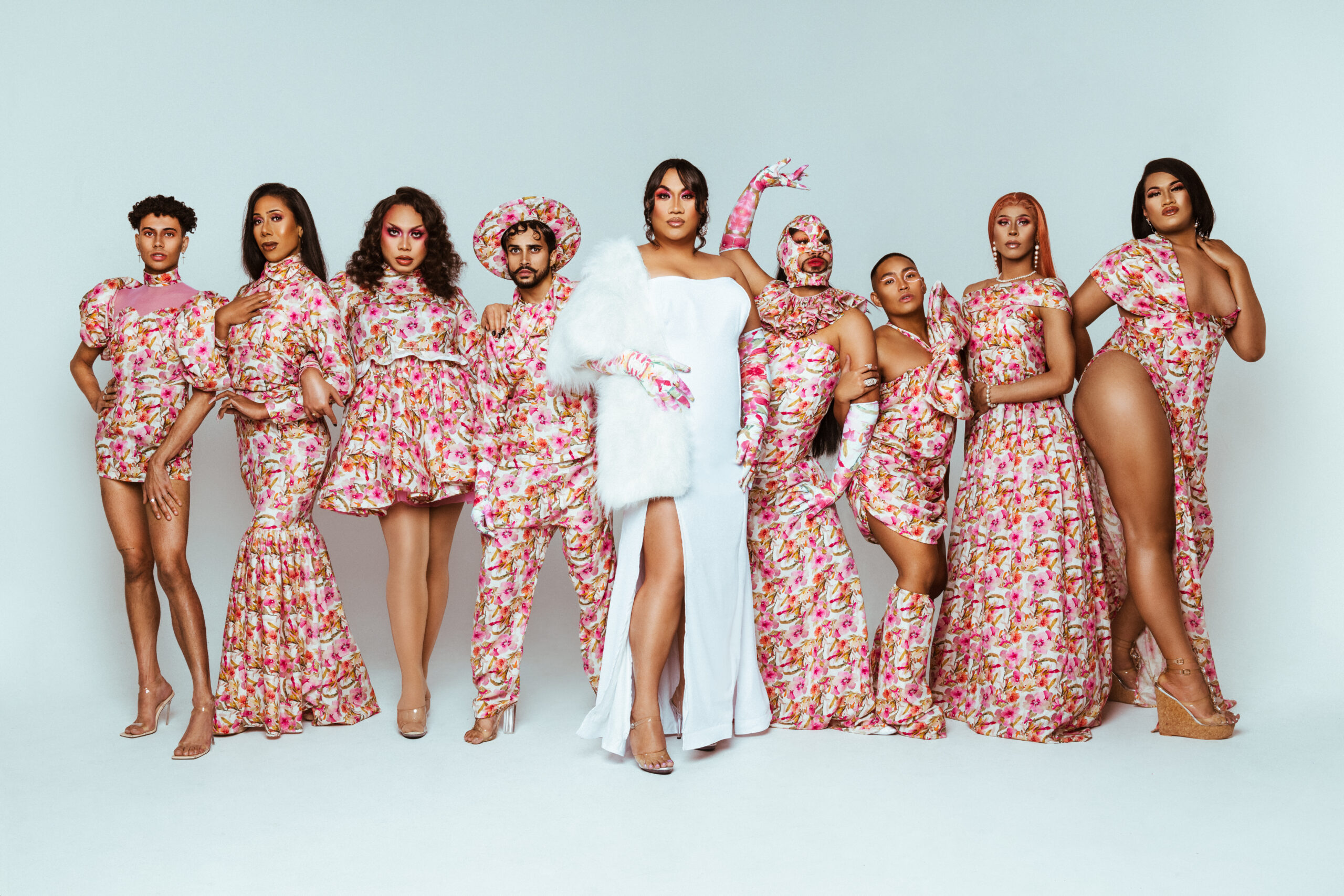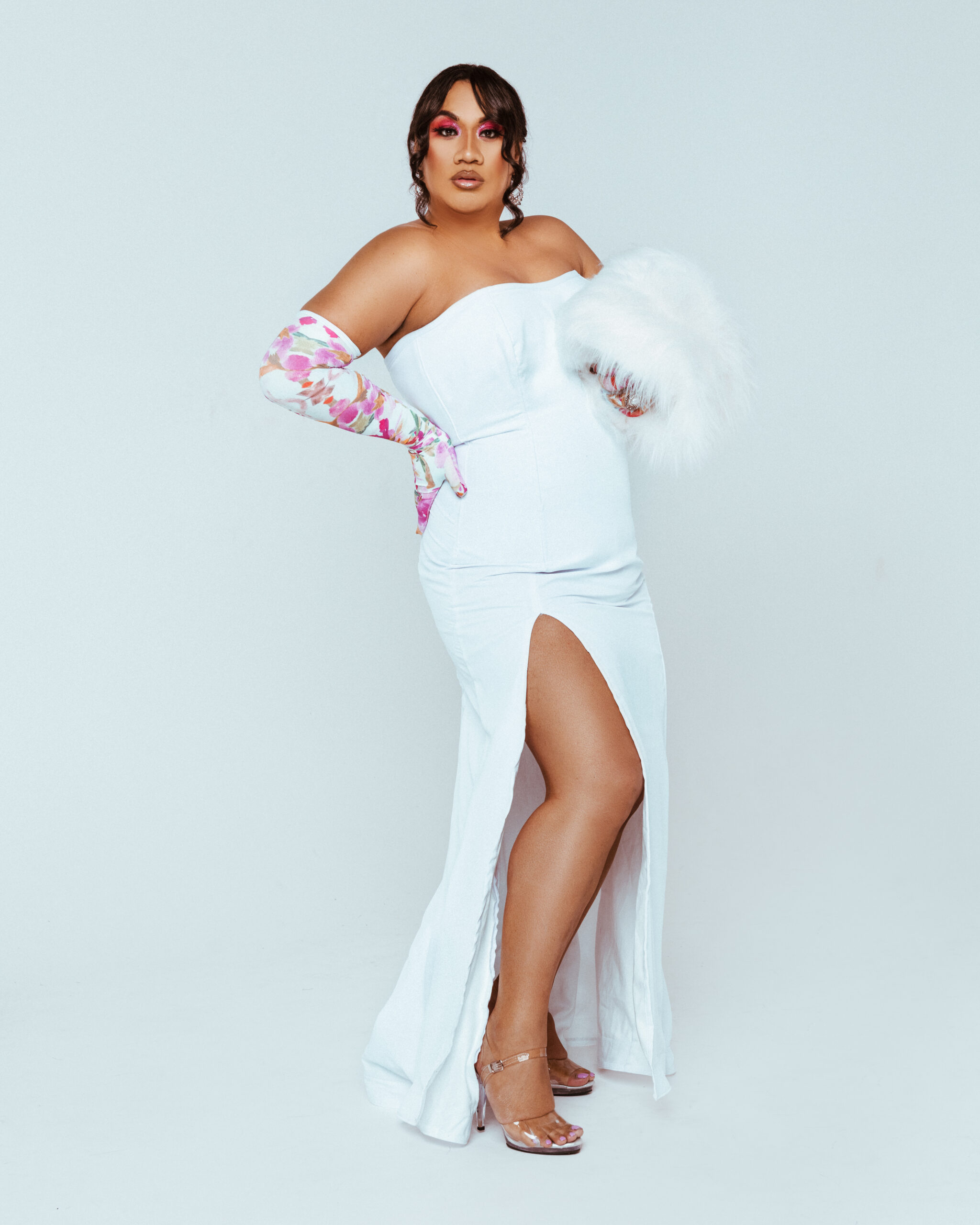Femme queen and pioneering mother of the trailblazing House of Alexander, Ella Ganza, talks to MGG about growing up trans, mothering Meanjin’s ballroom scene, and the SBS documentary ‘The Alexander Ball’.
Initially taking off in 1920’s New York, ballroom has straddled the fence of remaining somewhat of an underground subculture while simultaneously playing a major role in our style, language, movement, and culture. Though, through the powers of the internet, and TV shows like ‘Pose’, and ‘Legendary’, ballroom has made its way down the runway, around the world, and into the mainstream.
One person leaving her hallmark on the Australian ballroom scene is Ellla Ganza. From a childhood plagued with trepidations and uncertainty to commanding roaring crowds that chant her name as she struts down the runway proudly proclaiming her trans identity, Ella stands tall as a femme queen, a dynamo dancing diva, a proud Polynesian, and a fierce force of nature.
Ella Ganza is mother.
Born in New Zealand to Samoan and Māori parents, the youngster migrated to Ipswich, QLD where she often found herself struggling with the various intersections of her identity.Between navigating the stringent societal pressures that came with being from a religious Samoan family in pursuit of the ‘summit’, to struggling with her gender identity, Ella was beginning to buckle under pressure.
With nowhere to turn, she cultivated a safe place for herself and others, forming not one but two hip–hop dance collectives consisting of all POC and queer members.
To Ella, dance quickly became her sanctuary from the outside world. However, as time wore on, the cumulative years of wanting to make her family proud, along with denying who she was, Ella reached the point where she, “couldn’t live that lie any longer.” And it was this realisation which set her off on a journey of self-discovery.
On the other side of her turbulent adolescence, Ella has emerged as a pillar of her community, and a shining beacon for those still finding their way. She’s adamant that life has taught her how to help and guide, to serve, “a bigger purpose,” than herself.
“I realised that my calling is to scoop up the young in our queer communities,” begins Ella,“and making them feel that they belonging, and that they have the right to be themselves; to guide them through all the way, even when they do come out. That’s really what the underlying message is, that it’s so much bigger than yourselves.”
One way Ella has chosen to lead her community is by becoming ‘mother’ to the ‘House’ of Alexander. but what do these terms mean?
Mother: typically a “legend” in the ballroom scene, is a term that refers to matriarch of a house. Mothers of ballroom houses typically take on a mentoring role for members of the house.
House: a collective of individuals that participate and compete in balls under the same name. Often, they are chosen family.
Ella elaborates on her role as a mother, explaining that it’s one she doesn’t take lightly. With emotion in her voice, she says, “It’s important to teach my children – specifically my young trans women – on the importance of their existence, and on how to survive.”
Now boasting one of Australia’s most bustling ballroom scenes, the birth of Meanjin’s Ballroom scene somewhat mirrors the beginnings of the subculture itself. Ella explains that as she grew up, and made her way through Brisbane’s queer scene, she, “never felt seen, or represented in the community.”
“The so-called queer spaces were very white, cis, male, gay. I always felt like it was for them,” she says. “There was nowhere in Meanjin where I felt like this event, or this club, or this space, was for us. There’s nowhere I found where we were represented. So, for me, it was important to cultivate spaces for us, so that we can see ourselves represented.”
And this is one of the principal reasons why Ella once again took the initiative to begin cultivating a space for her, and people like her. Initially reaching out to the community and starting off small, the Meanjin Ballroom scene, “just started growing rapidly. Everyone just started loving what they were seeing,” she says. She elaborates that simply seeing queer POC thrive, and all come together was, “enough to empower her to keep the momentum going.”
In ‘The Alexander Ball’ documentary (which you can stream for free via SBS On Demand), Australia catches its first glimpse into the hypnotizing world of ballroom, one that sees Ella and her house prepare for the eleganza extravaganza that is the biggest queer event of the year, The Alexander Ball. The fly–on–the–wall film celebrates Ella Ganza, trans women of colour, and the queer POC community that use ballroom as their refuge.
As Ella‘s star continues to rise into the stratosphere, she remains grounded, saying that, “I’ve always wanted to be a woman, and the leader that I always wanted for my younger self… and I think that’s a reminder to keep pushing, because there’s a young Ella out there who need me.”
To support Ella and the House of Alexander, follow them on Instagram (@ella_ganzaaa and @houseofalexander__, respectively). Additionally, Ella is currently raising funds for her gender confirmation surgery to which you can donate at her GoFundMe link.





